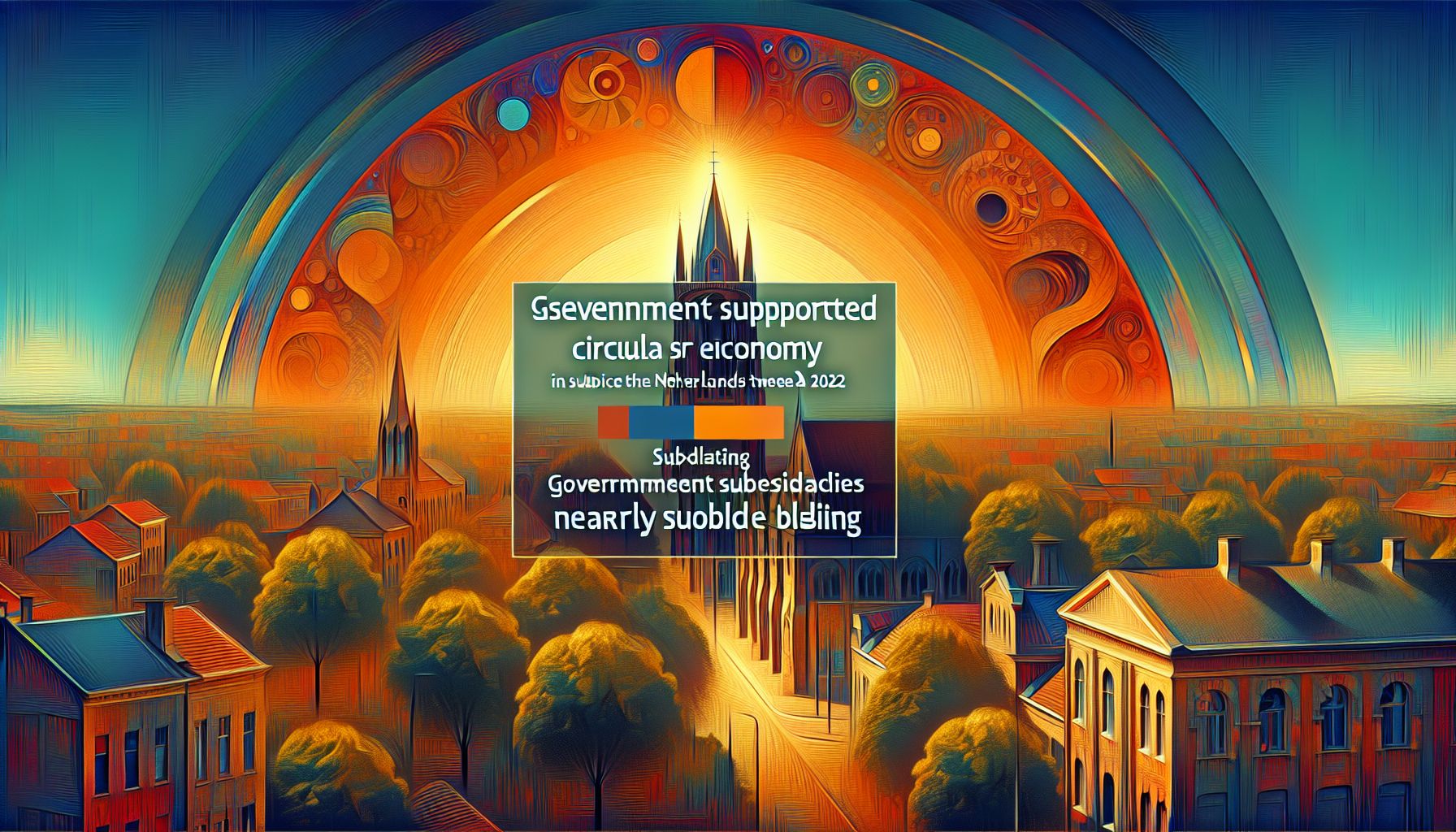Significant Rise in Subsidy-Supported Circular Projects in the Netherlands

The Hague, Thursday, 27 March 2025.
Between 2018 and 2022, the number of circular economy projects receiving governmental subsidies in the Netherlands nearly doubled, reflecting increased support for sustainable practices.
Dramatic Growth in Circular Innovation Support
The Netherlands has witnessed a remarkable increase in circular economy initiatives, with the number of subsidized projects rising from 341 in 2018 to 661 in 2022 [1]. In 2022 alone, the Dutch government, provinces, and the EU channeled €440 million through the Netherlands Enterprise Agency (RVO) to support circular projects, comprising €301 million in direct subsidies and €138 million in tax exemptions [1].
New Funding Opportunities for 2025
As of March 2025, several new funding streams have opened to accelerate circular innovation. The Demonstratie Energie- en Klimaatinnovatie (DEI+) program has allocated €80 million for circular economy projects, with applications being accepted from January 28 through August 28, 2025 [2]. This initiative specifically targets businesses in the Netherlands and the Caribbean Netherlands developing innovative recycling and resource management solutions [2].
Specialized Support for Plastics and Repair Sectors
During the Week of the Circular Economy (March 17-22, 2025), the RVO launched two dedicated knowledge platforms focusing on plastics and repair initiatives [1]. These platforms, unveiled on March 19, 2025, provide entrepreneurs with comprehensive information about financial support mechanisms and regulatory requirements [1]. Notably, new subsidies such as Circular Plastics NL (CPNL) and the Subsidie Omschakeling plasticverwerkers (SOPV) have been introduced to specifically support plastic recycling innovations [1].
Looking Ahead: Infrastructure and Implementation
The Dutch government has implemented a temporary regulation for sustainable and circular infrastructure, with a total funding pool of €9 million [4]. This initiative allows municipalities and provinces to apply for up to €400,000 per project to implement sustainable measures in public infrastructure [4]. The comprehensive approach demonstrates the Netherlands’ commitment to achieving its circular economy targets, aiming for 50% circularity by 2030 and complete circularity by 2050 [6].

